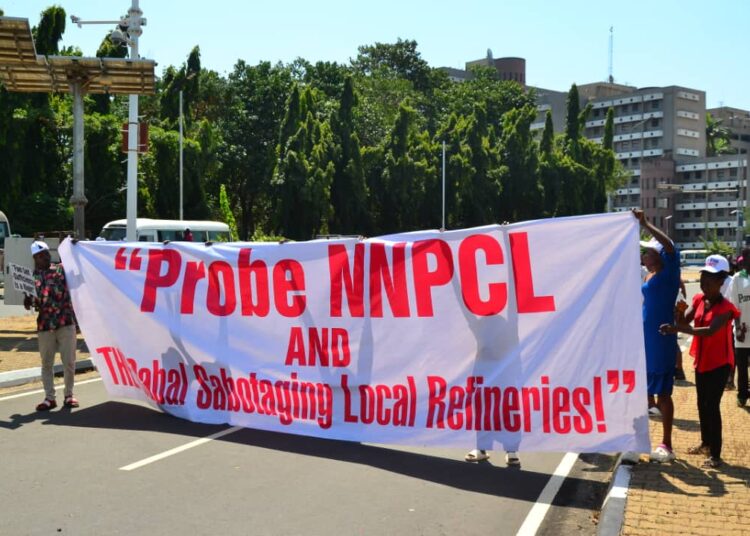Civil society organisations (CSOs) were at the main entrance to National Assembly yesterday to protest against the importation of petrol and demanded that the practice should be stopped while local refineries be encouraged to thrive.
Known as the Nigerian Coalition of Civil Society Organisations (NICOCSO), the CSOs urged both President Bola Tinubu and the National Assembly to immediately authorise an investigation into the activities of the Nigerian National Petroleum Company Limited (NNPCL) and the alleged cabal within the fuel sector to uncover and expose any malicious manipulation or corruption.
Addressing journalists at the protest, NICOCSO spokesman,
James Segun-Adebayo, said they would continue with the advocacy, rallying every day across the 36 states to make their voices heard if the government failed to act.
“We will not stand down until this administration addresses our demands for transparency, reform, and accountability within the NNPCL. Our economy and the well-being of the Nigerian people depend on decisive action against those who hinder our path toward energy independence.
“We stand united under the NICOCSO to protest actions that threaten our nation’s economic future and sovereignty. We are here to raise urgent concerns about the group within the Nigerian National Petroleum Company Limited (NNPCL), led by Mele Kyari, whose policies jeopardise our economic stability by prioritising imported Premium Motor Spirit (PMS) over local refining.
“Despite Nigeria’s potential to refine fuel locally, vested interests within the NNPCL continue to impose PMS importation on Nigeria. This unnecessary import dependency costs Nigeria billions in foreign exchange every year, placing our economy under enormous strain. Meanwhile, the people bear the brunt of fluctuating global oil prices and currency devaluation.
“We are here today at the National Assembly to demand that our representatives stand with the Nigerian people. We call for the immediate removal of Mele Kyari from his position as the Group Chief Executive Officer of NNPCL. His leadership has frustrated local refinery initiatives, maintained harmful policies, and upheld a system that harms the nation’s economy,” he said.





